#My Fellow South Africans
Text
Of family meetings and other lies
"Of family meetings and other lies", a review of Mike van Graan's 'My Fellow South Africans' at Theatre on the Square in Sandton until 2 September.
WITH an ‘eff you’ face, Kim Blanche Adonis in Mike van Graan’s My Fellow South Africans at Theatre on the Square until 2 September. Photograph by Philip Kuhn.
THERE IS NOTHING quite like the anger of an articulate playwright to get the currents of electricity flowing through the veins of an audience. My Fellow South Africans by Mike van Graan charges up the levels of political satire with strong…

View On WordPress
#Ben Voss#Blaze Zimba#Computicket#Conrad Koch#Daniel Mpilo Richards#Daphne Kuhn#Dudley Moore#John van de Ruit#Jonathan Shapiro#Kim Blanche Adonis#Marc Lottering#Mike van Graan#My Fellow South Africans#Nic van Graan#Philip Kuhn#Pieter-Dirk Uys#President Cyril Ramaphosa#Rob van Vuuren#Sandton#Spike Jones and the City Slickers#Theatre on the Square#Zapiro
0 notes
Text
I was thinking (and this is not a thingy against the happiness of my ac milan moots bc I don't support napoli either it's just a casual thought)
it's poetic and romantic and everything that is good in football right now that napoli is leading serie A. I say this as a supporter of that stupid club from the north who also lives up north. Napoli is south italy, and south italy has had quite a terrible history of discrimination from northeners: from being poorer, from being just...more mediterranean? more distant to "europe" ? closer to africa?
just think: some ugly inter milan, ac milan, juve, atalanta or lazio supporters (etc) still love to chant about people from napoli deserving cholera. And Naples went through a terrible cholera epidemic back in the 70s, something unreal when you think of a european country, right? When people from the south migrated up north to find jobs, it was even difficult for them to find houses to live, because nobody wanted to rent to them. financial exploitation of the south from the north it's what italy was built upon. And that discrimination is still very true today, with half of the country way much poorer than the other.
And if you look at serie A only THREE clubs out of TWENTY are from anywhere under Rome. And this is why Napoli is very much into football and the whole city is already celebrating. You might say this is just a sport but it's not and never will be.

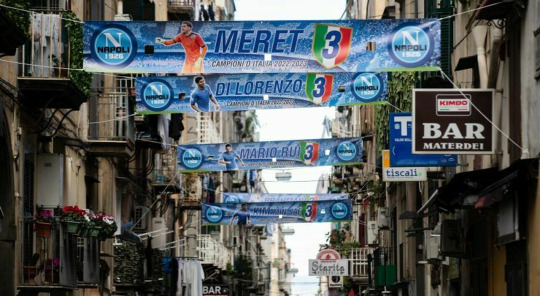

#i love you my southern italians brothers and sisters#I had to study today so I tried to stay offline but i'm giving up i'm bingewatching this show set in naples so now I'm affectionate#you know...ultimately this is my dream club destination for him but I'll shut about it no worries !#also as a north african diaspora kiddo you know. i'm very affectionate towards south italy. these are my fellow brothers and sisters#mediterranean united against europe gotta support .
35 notes
·
View notes
Text
Non-offensive Historical terms for Black people in historical fiction
@pleasespellchimerical asked:
So writing historical fiction, with a white POV character. I'm not sure how to address race in the narration. I do have a Black main character, and I feel like it'd feel out of place to have the narrator refer to her as 'Black', that being a more modern term. Not sure how to do this without dipping into common historical terms that are considered racist today. Thoughts on how to handle this delicately, not pull readers out of the narrative? (fwiw, the POV character has a lot of respect for the Black character. The narration should show this)
There are non-offensive terms you can use, even in historical fiction. We can absolutely refer to Black people without slurs, and if slurs is all one can come up with, it’s time to go back to the drawing board. I cannot say which terms are best for your piece without knowing the time period, but hopefully the list below helps.
Historical terms to use for Black people (non-offensive)
African American documented as early as 1782 (documented in an ad in the Pennsylvania Journal). Note the identity isn’t accurate for non-American Black people.
African could refer to African people or “from 1722 as ‘of or pertaining to black Americans.’”
The place of origin could also be used. For example, “a Nigerian woman”
Africo-American documented as early as 1788.
People of Color documented as early as 1796 (with specific contexts, usually mixed people)
Afro American documented as early as 1817, 1831 (depending on source)
Black American documented as early as 1831
Black was used in Old English to refer to dark-skinned people. Black was not capitalized until recent years, so “She was a young black woman.” would make sense to say, though “She was a young Black woman.” is the better standard today, although not universally adopted. I personally prefer it capitalized.
Moor was used as early as the late 1400s for North African people, but had a somewhat flexible use where anyone visibly Black / Of African descent or the Afro Diaspora might be referred to or assumed as a Moor. Note, it has other meanings too, such as referring to Muslim people, but that doesn’t mean the person using it is going by the dictionary definition. Not really the way to go today, but okay in a historical setting (in my opinion).
Biracial (1860s), mixed race (1872), multiracial (1903) and multicultural (1940s) are also terms to refer to people of two or more races.
Occupation + description. Throughout history, many people have been referred to as their occupation. For example, the Carpenter, The Baker, the Blacksmith. Here’s an example of how you might go about using occupation and traits to identify a Black character in history. Here’s an example I came up with on the fly.
“You should go by Jerry’s. He’s the best blacksmith this town’s ever seen. Ya know, the real tall, dark-skinned, curly haired fellow. Family’s come here from Liberia.”
Offensive and less-sensitive terms for Black people
Blacks was used in plural more, but this is generally offensive today (Even writing it gives me **Thee ick*)
Colored was mostly used post-civil war until the mid 20th century, when it became unacceptable. This is not to be conflated with the South African Coloured ethnic group.
Negro/Negroes were also used as early as the 1550s. Capitalization became common in the early 20th century. I'm sure you know it is offensive today, though, admittedly, was not generally seen as such until around the 1960s, when Black replaced it. It does have its contexts, such as the trope “The Magical Negro” but going around using the term or calling someone that today is a lot different.
Mulatto referred to mixed people, generally Black and white, and is offensive today.
The N-word, in all its forms, is explicitly a slur, and there is absolutely no need to use it, especially in a casual manner, in your story. We’ve written about handling the N-word and alluding to it “if need be” but there are other ways to show racism and tension without dropping the word willy-nilly.
Deciding what to use, a modern perspective
I’m in favor of authors relying on the less offensive, more acceptable terms. Particularly, authors outside of the race. Seldom use the offensive terms except from actual direct quotes.
You do not have to use those offensive terms or could at least avoid using them in excess. I know quite famous stories do, but that doesn’t mean we have to so eagerly go that route today. Honestly, from teachers to school, and fellow non-Black students, it’s the modern day glee that people seem to get when they “get a chance to say it” that makes it worse and also makes me not want to give people the chance.
It goes back to historical accuracy only counting the most for an “authentic experience” when it means being able to use offensive terms or exclude BIPOC from stories. We’ve got to ask ourselves why we want to plaster certain words everywhere for the sake of accuracy when there are other just as accurate, acceptable words to use that hurt less people.
Disclaimer: Opinions may vary on these matters. But just because someone from the group cosigns something by stating they’re not offended by it, doesn’t mean a whole lot of others are okay with it and their perspectives are now invalid! Also, of course, how one handles the use of these words as a Black person has a different connotation and freedom on how they use them.
~Mod Colette
The colonial context
Since no country was mentioned, I’m going to add a bit about the vocabulary surrounding Black people during slavery, especially in the Caribbean. Although, Colette adds, if your Black characters are slaves, this begs the question why we always gotta be slaves.
At the time, there were words used to describe people based on the percentage of Black blood they had. Those are words you may find during your searches but I advise you not to use them. As you will realize if you dive a bit into this system, it looks like a classifying table. At the time, people were trying to lighten their descent and those words were used for some as a sort of rank. Louisiana being French for a time, those expressions were also seen there until the end of the 19th century.
The fractions I use were the number of Black ancestors someone had to have to be called accordingly.
Short-list here :
½ : mûlatre or mulatto
¼ or ⅛ : quarteron or métis (depending on the island, I’m thinking about Saint-Domingue, Martinique and Guadeloupe)
1/16 : mamelouk
¾ : griffe or capre
⅞ : sacatra
In Saint-Domingue, it could go down to 1/64, where people were considered sang-mêlé (mixed blood for literal translation, but “HP and the Half-Blood Prince” is translated “HP et le Prince de Sang-Mêlé” in French, so I guess this is another translation possibility).
-Lydie
Use the 3rd person narrative to your advantage
If you are intent on illustrating historical changes in terminology consider something as simple as showing the contrast between using “black” for first person character narration, but “Black” for 3rd person narrator omniscient.
-Marika
Add a disclaimer
I liked how this was addressed in the new American Girl books
it’s set in Harlem in the 1920’s and there’s a paragraph at the beginning that says “this book uses the common language of the time period and it’s not appropriate to use now”
-SK
More reading:
NYT: Use of ‘African-American’ Dates to Nation’s Early Days
The Etymology dictionary - great resource for historical fiction
Wikipedia: Person of Color
2K notes
·
View notes
Note
you're from TEXAS ?!? why was i so convinced you were south african . i followed you partially out of solidarity for my fellow countrymen (though your posts are all great too) how did i even come to this conclusion . this is not hatemail by the way i love your blog and dont mind that you are texan
I’m from California but live in Texas but I’m a dirty American either way. I also don’t know how you came to that conclusion because I’ve never been to South Africa but I’m glad you’re liking the blog.
168 notes
·
View notes
Text
Anger Prompts list
"Are you out of your mind!?"
"did I say I needed your help!?"
"When was I meant to find out? when it was too late!?"
"get out of my face!"
"you're ruining it!"
"I worked my ass off on this and you just had to walk right over my effort!"
"I would push you in front of a train if murder wasn't illegal!"
"How many times do I have to say no!"
"I don't care!"
"Is that it!? you're giving up!"
"I won't let you beat me!"
"I'm better than you could ever dream of being!"
"Your words mean nothing to me! nothing!"
"What is your brain for!"
"go be a fucking ornament,"
"I don't need you dragging me down,"
"you!? what are you doing here!"
"I refuse to work with a useless brat!"
"If you didn't jump in, she would still be alive!"
"you ruin everything!"
"What did you say!?"
"Why are you crying!?"
"Just because I don't deserve it, doesn't mean I'm not going to take it!"
"where did you even get that idea!"
"use your damn ears!"
"what use are you!?"
"don't fuck up this time!"
"give me a god damn break!"
"I work harder than everyone in this entire place!"
"There isn't a way to turn back!"
"you crashed!?"
"I'm perfectly calm!"
"you utter moron!"
"Why won't you just leave me alone!"
"take a dive off a roof! see if I care!"
"Who ate my food!"
"I'll break you myself!"
"there's a grave waiting for you!"
"oh, now you show!"
"Who's stupid idea was this!"
"I can't believe I fell for that!"
"you like toying with me!?"
"I'll show you what the best looks like!"
"I am not cranky!"
"go to hell!"
"like I'd choose to waste my time around you!"
"Break a leg, and I mean literally!"
"There is no way I'm getting on that!"
"Why am I always in the wrong!?"
"Forget it!"
Join our Discord and chat with fellow writers. There's space for artists, gamers and even D&D. Pick what you want to see and hang with like-minded people. For South African Writers here is an SA-based discord server for writing.
#original prompt#dialogue prompts#writing prompts#story prompt#writing prompt#writing ideas#prompt list#writing#writers on tumblr#oc prompt#imagine your ocs#dialogue prompt#story inspo#story ideas#creative writing prompt#creative writing inspo#creative writing ideas#daily prompt#daily writing prompt#anger#Anger prompts
4K notes
·
View notes
Text
"Ten years ago this August, a white police officer killed 18-year-old Michael Brown in Ferguson, Missouri. What happened on Canfield Drive that day sparked a nationwide movement to save Black lives, end police brutality, and make safety a reality for all people. As a registered nurse, pastor, and local activist, I spent over 400 days protesting alongside thousands of my fellow community members.
I will never forget the brutality we faced in response to our calls for humanity. Police used tear gas, pepper spray, rubber bullets, noise munitions, batons, shields, fists, and boots against us. The Missouri National Guard called us “enemy forces.” Our government labeled us “Black identity extremists.” Many politicians condemned us. Those of us on the front lines were traumatized, but we knew that time would prove we were on the right side of history — and it did. Time will prove the same for the students currently protesting across the country.
....
None of what protesters in Ferguson and at Columbia University have experienced is new — it’s happened hundreds of times throughout our history. It happened in Boston in 1770, when protesters supported independence from British rule. It happened in Pennsylvania in 1897, when mine workers demanded labor rights. It happened in Virginia in 1917, when protesters demanded equal rights for women. It happened in Selma in 1965, when protesters demanded civil rights for Black people. It happened in New York, Chicago, St. Louis, and elsewhere in 1968, when protesters demanded an end to the Vietnam War. And it happened in Washington, DC, and in communities all across our country in 2020, when protesters demanded an end to police brutality.
Behind every attempt to silence a protester is an idea that those in power don’t want people to hear, yet protest movements have been remarkably successful throughout our history. The women’s suffrage movement led to the ratification of the 19th Amendment despite opposition from those in power. The same is true of the Civil Rights movement, which culminated in the Civil Rights Act of 1964 and Voting Rights Act of 1965, and the youth-led nationwide protests that led to the end of the Vietnam War, and South African apartheid.
...During the Ferguson protests, a group of Palestinians visited us and taught us how to protect ourselves against tear gas. That moment opened my eyes to the connection between state-sanctioned violence at home and abroad.
..It’s time our government responded to popular social movements with an ear, instead of a boot.
#student protests#cori bush#police state#police brutality#police violence#solidarity#gaza solidarity encampment#palestine#free palestine#gaza#genocide#isreal#colonization#apartheid#american imperialism#us politics#settler police#settler colonialism#settler violence
87 notes
·
View notes
Text
Holmes being a hypocrite🥰meant with love for my favourite detective
Something I noticed immediately in my re-reading of A Study in Scarlet, was this line from Holmes, where he's discussing famous literary detectives such as Dupin and Lecoq. He says the following:
"Now, in my opinion, Dupin was a very inferior fellow. That trick of his of breaking in on his friends' thoughts with an apropos remark after a quarter of an hour's silence is really very showy and superficial."
Holmesies you can't catch me out !! You did the exact same thing in The Dancing Men!!
Holmes had been seated for some hours in silence, with his long, thin back curved over a chemical vessel in which he was brewing a particularly malodorous product. His head was sunk upon his breast, and he looked from my point of view like a strange, lank bird, with dull grey plumage and a black top-knot.
"So, Watson," said he suddenly, "you do not propose to invest in South African securities?"
I gave a start of astonishment. Accustomed as I was to Holmes's curious faculties, this sudden intrusion into my most intimate thoughts was utterly inexplicable.
'How on earth do you know that?' I asked.
two points: I haven't read any Dupin stories (I plan to) so I don't know how this compares to how he does it.
Secondly, you could argue it's slightly less superficial, as Holmes does go on to explain how he figured it all out.
But I just love it because it showcases Holmes's show-offy style and want to impress people (especially Watson). Him being a hypocrite here just makes him more human. He gets so caught up in wanting to be different and unique that he doesn't catch this one !! I adore that, honestly.
Edit: He does this also in The Resident Patient and The Field Bazaar
81 notes
·
View notes
Text
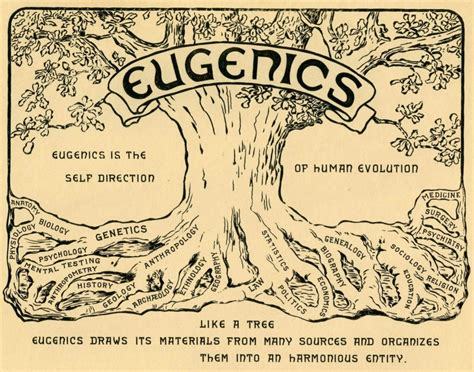
Queer Ecologies: Sex, Nature, Politics, Desire
Chapter 2 : Enemy of the Species by Ladelle McWhorter (part 3)
Species Troubled Past
1830s, USA—the abolitionists movement was growing. “it was simply wrong to enslave fellow human beings, no matter what benefits to society might result and no matter what racial differences might exist in intelligence, strength, health or ability” and old justifications for slavery no longer carried weight so slavery defenders turned to science—“Negroes and Caucasians were in fact distinct species” (79)
‘Important’ Names:
John Bachman- naturalist, South Carolina
Josiah Nott- physician, Alabama, “the most vocal of slavery’s scientific proponents”
Samuel G. Morton- world-renowned anatomist and professor medicine, Philadelphia
James Cowles Prichard- biologist, England
Nott used Prichard’s definition of species, “separate origin and distinctness of races, evinced by a constant transmission of some character peculiarity of organization” and referenced Morton’s study that found “significant racial differences in cranial capacity” to claim that Caucasians, Negroes, American Indians were separate species (79)=polygeny
Monogeny =the theory that humanity is one unitary species; Bachman offered this definition of species: “those individuals resembling each other in dentition and general structure. In wild animals […] they must approach the same size; but in both wild and domesticated animals they must have the same duration of life, the same period of utro-gestation, the same average number of progeny, the same habits and instincts, in a word, they belong to one stock that produce fertile offspring by association” (2005, 220) (80)
Racial diversity already existed in the USA, so Nott argued that ‘Mulattoes’ (crosses between Negroes and Caucasians) were sterile hybrids like mules and thus met Buffon’s requirement and qualified as two distinct species (80)-- he used his ‘observations’ as a physician who had treated many enslaved people to support this.
“Between 1846 and 1850 most respected scientists in the United States converted to polygeny”. Types of Mankind (1854)-published by what is now known as the American School of Anthropology.
Returning to Foucault’s words the author states, “concepts […] are for cutting. They are never merely benign representations of a natural arrangement.” (81) “Species could be made to function oppressively to separate white from blacks because […] it was already a tool for marking separations in natures heterogenous continuities in the interest of prevailing human practices” (81).
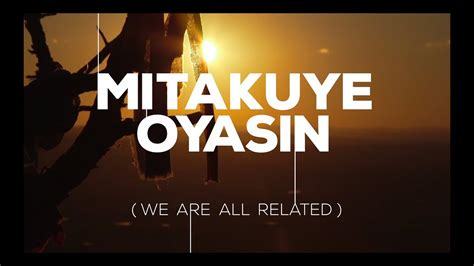
The Origin of Species (1859) Charles Darwin, who like many others maintained that the concept of species was practically meaningless, given the inevitability of evolution. “There are not eternally fixed types, nor are there eternally distinct lines of descent. All life on earth, no matter how morphologically or functionally distinct at present, conceivably could be traced back to a single germ line” (81) To me this concept is also what Mitakuye Oyasin means—we are all related. I believe my ancestors knew this ‘scientific’ truth long before Charles Darwin was alive. Charles Darwin never answered the question on the origin of species—species must change over time but not when change amount to a new species (82).
The theory of natural selection was remarkable, proponents agreed but it was incomplete—clearly certain groups like Africans, Pacific Islanders, and indigenous people from North and South America had not evolved sufficiently to produce ‘civilization’ (82) (Between indigenous peoples and those who supposedly created ‘civilization’, only one group has nearly destroyed their very environment at almost every turn—making them remarkably unfit and poorly adapted to the planet--and it isn’t indigenous peoples). But even those in the ‘higher races’ could fail to adapt—criminals, idiots, the mad, the degenerate, the chronically ill…like the ‘lower races’ these weaklings should be eliminated by natural selection. BUT, the Caucasian elite grew increasingly anxious…was humanity still evolving? Or was civilization circumventing the evolutionary process? Could it even reverse itself?—devolution. Modern technology and medicine= saving more people who might have once not survived, “allowing those with inferior traits to mature and reproduce” (82).
Madison Grant, was one of the many theorists who was concerned about devolution. He was a New York attorney and a conservationist who co-founded the Save-the-Redwoods League and the Bronx Zoo and helped establish Glacier and Denali National Parks. (83) Grant believed humans had evolved under harsh environmental conditions. Anglo Saxon history and the rising tide of inferiority that was everyone else…”Mistaken regard for what are believed to be divine laws and a sentimental belief in the sanctity of human life, tend to prevent both the elimination of defect in infants and the sterilization of such adults as are themselves of no value to the community. The laws of nature require the obliteration of the unfit” (Grant 1916,44-45) (83). (When in fact it is humans caring for one another that built humanity and underlies the entire point and purpose of civilization). Grant advocated for the sterilization of the criminal, diseased, insane and other weaklings and those he termed ‘worthless race types’ like Jews, blacks and indigenous peoples.
Immigration, they believed, should also be curtailed to prevent undesirables from entering the USA. “Immigration is thus, from the racial standpoint a form of procreation and like the more immediate form of procreation it may be either the greatest blessing or the greatest curse” (Stoddard 1925, 252) (84).
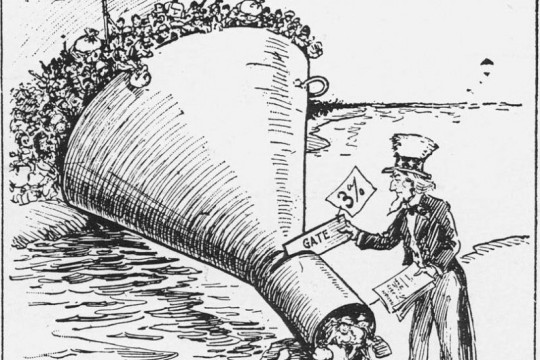
So elite influential men and their allies created organizations such as the Immigration Restriction League (full of Harvard alumni), the American Breeders’ Association (later renamed the American Genetics Association), and what later became the American Psychiatric Association-- and they won passage of an immigration restriction bill (1917)—it instituted literacy tests, put caps on the number of immigrants, national quotas and denial of entry basis on the condition called ‘constitutional psychopathy’. This effectively screened out anyone who did not conform to gender norms or anyone who admitted to homosexual desire. “Further, any immigrant who, during the first give years of residence in the United States, committed a crime or showed signs of any allegedly hereditary physical or mental defect, including sexual inversion, could be deported” (84). Congress also barred people who were ‘feebleminded, morally degenerate, or sexually suspect’.
Then in 1924, they reduced the number of people who could immigrate to the US by an annual total of 150,000, making it the exclusive country in the world. These provisions stayed in effect well past the middle of the twentieth century (85).

The introduction of the Simon-Binet IQ test in 1912 made identifying those were ‘intellectually unfit’ quick and easy (85)—public schools became screening grounds. Certain children would be segregated from their classmates until they could be institutionalized. The test was modified by eugenicist psychologist Henry Goddard to include a grade of ‘feeblemindedness beyond the imbecile. Individuals with a test measured mental age of eight to twelve years were classified as morons.’ (85) “Women who had children out of wedlock were automatically classified as such but any deviation from heterosexuality and prescribed gender roles could earn a person the label of moral imbecile in addition to the label of degenerate, lunatic or psychopath” (85-86). Hundreds of thousands were locked up for life as a result of these efforts to forestall a perceived threat to natural selection and evolution of humanity.
Quietly, eugenicist physicians had been sterilizing ‘defectives’ in prison, hospitals and asylums since the 1880s. In 1927, the Supreme Court endorsed these eugenic practices in Buck v Bell (86). By 1927, the number of Americans legally sterilized without their consent would reach 65,000~ (86).
“Adolf Hitler learned a great deal from American eugenicists, particularly about involuntary sterilization” –1934 Nazi involuntary sterilization law was based on the Model of Eugenical Sterilization Law drafted by American biologist Harry Laughlin (1922). He advocated for the sterilization of about 10% of the U.S population, those deemed ‘socially inadequate’ such as the (1) feeble-minded; (2) Insane, (including the Psychopathic); (3) Criminalistic (including the delinquent and wayward);(4) Epileptic; (5) Inebriate (including drug habites); (6) Diseased (including the tuberculosis, the syphilitic, the leprous, and others with chronic infections and legally segregable diseases); (7) Blind (including those with seriously impaired vision); (8) Deaf (including those with seriously impaired hearing); (9) Deformed (including the crippled); and (10) Dependent (including orphans, ne-er-do-wells, the homeless, tramps and paupers) (Laughlin) (86-87).
By 1934, nearly thirty US states had enacted such laws, though few were as drastic as Lauglin’s suggestion. Some provinces in Canada and in Europe also followed. “The Nazis […] has some serious eugenic catching up to do” (87).
By 1937, the Nazis had sterilized approx. 250,000 Germans before they began to eliminate defectives through eugenic ‘euthanasia’ (87)—genocide.
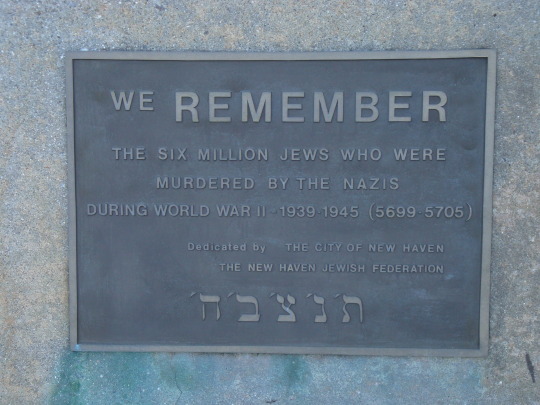
Though such things were never enacted in the US, proponents of eugenics considered it and continued to push their sterilization agenda (Partlow and his three-man committee designed to sterilize any sexual perverts, Sadists, homosexualists, Masochist, Sodomists or two-time convicted rapists. They would have no right to judicial review. The bill passed state legislature when it was vetoed twice by Governor Bibb Graves) (88).
As the details of the Nazi regime became more widely understood in the US, the eugenics movement lowered its profile and changed tactics. “Eugenics should therefor operate on a basis of individual selection” and “Eugenics, in asserting the uniqueness of the individual, supplements the American ideal of respect for the individual” (89)
#queer ecologies: sex nature politics desire#eugenics#genetics#critical ecology#queer ecology#ecofeminism#queer theory#environmental politics#colonialism#racism#ableism#erotophobia#heteronormativity#queer history#nazis#ww2#immigration#immigrants#ecology#long post
25 notes
·
View notes
Text

By: Ron Kapeas
Published: Jan 8, 2024
JTA — In a speech marking Martin Luther King Jr. Day weekend, Rep. Ritchie Torres likened protesters who have celebrated Hamas’s October 7 massacres to white people in the Jim Crow era who celebrated after the lynching of Black people.
“I was profoundly shaken not only by October 7, but by the aftermath,” Torres, a Black Bronx Democrat, said Friday in a speech at Central Synagogue, a prominent Reform congregation in midtown Manhattan. “I found it utterly horrifying. To see fellow Americans openly cheering and celebrating the deadliest massacre of Jews since the Holocaust. And for me, the aftermath of October 7 revealed a barbarity of the American heart that reminded me of an earlier and darker time in our nation’s history, a time when the public mobs of Jim Crow would openly celebrate the lynching of African Americans.”
Protests have proliferated since October 7, when Hamas terrorists murdered some 1,200 people, kidnapped around 240 and brutalized thousands more in an invasion from Gaza. They have grown as Israel has waged a war in Gaza to eliminate the terror group, and especially as casualties mounted: So far, close to 25,000 Palestinians have been killed, according to the Hamas-run Gaza health ministry, which does not differentiate between fighters and non-combatants and is also believed to tally civilians killed by errant rockets fired by terror groups.
A number of the protests have decried the October 7 violence on Israelis, but others have skated over the initial massacres or have embraced Hamas and described its atrocities as resistance.
Torres, a member of the progressive caucus in Congress, has garnered a reputation as an unstinting supporter of Israel. He has duked it out online with fellow progressives in debates over Israel, a dynamic that has only intensified since October 7. Torres is heavily funded by AIPAC and donors aligned with the pro-Israel lobby, and spoke at a massive rally for Israel in Washington on November 14.
In his speech, Torres alluded to the controversies that assailed elite universities after the presidents of Harvard, the Massachusetts Institute of Technology and the University of Pennsylvania told Congress that calls to commit genocide against Jews did not necessarily violate the schools’ codes of conduct. The ensuing uproar drove Harvard’s and Penn’s presidents to resign.
“What we’ve seen in the aftermath of October 7, is appalling silence and indifference and cowardice from so called leaders in our society from institutions that we once respected and admired,” he said. “And if we as a society cannot bring ourselves to condemn the murder of innocents with moral clarity, then we must ask, what are we becoming as a society? What does that reveal about the depths of antisemitism in the American soul?”
I had the honor of delivering the annual MLK sermon at Central Synagogue.
My speech touches on a range of topics and themes: October 7th, Jim Crow, Leo Frank, MLK, Elie Wiesel, silence, indifference, moral clarity, nonviolence, Israel, Am Yisrael Chai, Hatikvah, and hope. pic.twitter.com/stxqxzgyLi
— Ritchie Torres (@RitchieTorres) January 16, 2024
Central is a locus for some of the city’s wealthiest liberal Jewish families, many of whom are also firm supporters of Israel. Dr. Shonni Silverberg, the synagogue president, introduced Torres as a champion of progressive priorities as well as an advocate for Israel, and noted that he is the first openly LGBTQ representative elected from the Bronx.
“Ritchie remains steadfastly focused on the priorities of his South Bronx constituents, expanding access to safe and affordable housing, rebuilding New York economically and ensuring that no child goes hungry and that all receive a good education,” she said. “But he has also shown himself both in and out of Congress to be a great friend of the American Jewish community and Israel.”
--
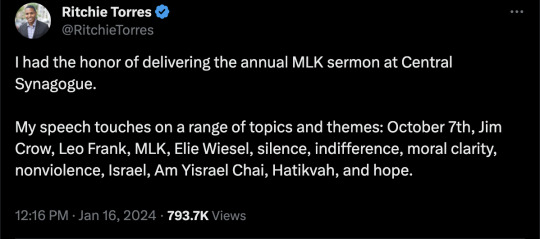
==
I was shocked, but not surprised. Shocked at how openly, how loudly and how quickly pro-Hamas, pro-terrorism supporters emerged from their Postcolonial Studies, Gender Studies, Intersectional Feminism Studies and other fraudulent sewers in the ivory towers long before Israel ever fired a shot back.
I was not surprised, however, since antisemitism is a cornerstone of Intersectionality, as I posted about more than two years ago:
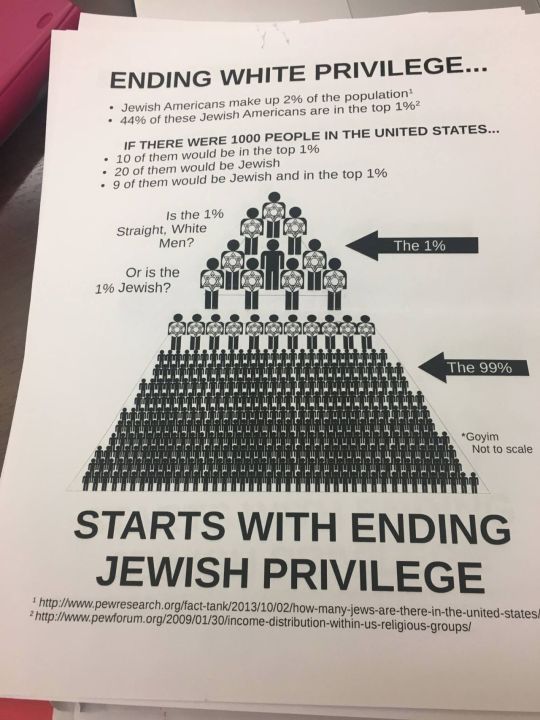
I naïvely expected that they'd go, "whoa, we didn't mean it like that, that's not what we were after," the standard No True Scotman tactic to distance their enlightened antisemitism from the antisemitism of murderous Islamic jihadists.
But they went the other way and leaned into it, cheering it on, while others tried to gaslight everyone with the usual array of denials that they weren't saying what they were openly saying, and that anyway, if they were saying it, that's not what they meant.
#Ritchie Torres#MLK Jr Day#MLK Day#Martin Luther King#Martin Luther King Day#Martin Luther King Jr Day#islamic terrorism#hamas#hamas supporters#pro hamas#pro palestine#pro palestine is pro hamas#antisemitism#October 7#Oct 7#hamas massacre#october 7 massacre#exterminate Hamas#religion is a mental illness
22 notes
·
View notes
Note
neutrality is a much greater threat than taking a side. you can't create balance by putting your two feet in separate boats which ultimately are sailing in opposite directions. your heart is in the right place but instead of using your empathy outwardly to help your fellow people, you are using it to appease yourself and absolve yourself of responsibility. your empathy should not remain a feeling but should transform into action. otherwise your empathy holds no value if it can't be felt by the people you have empathy for. which they can only feel if you do something with your empathy. for them.
if you have the ability to recognize the hateful intentions and actions of hindutva extremists, why then are you saying that the only solution is "karma"? that they will get karma'd? i get that you're religious and all. but ultimately isn't leaving fate to god also inaction, avoidance, irresponsibility. god did not save the jews, and if conscious hindus make excuses like "karma", guess what, god will not be able to save our muslims either.
all this to say, abeyyaaar is right. and you are being wrongly defensive.
"all lives matter" as a slogan would have made sense had there been someone who was denying that notion. but who's denying this stance? no one. all lives matter is a given. hell it is a right. but wonder why activists say "black lives matter", "muslim lives matter", "indigenous lives matter" and why that is important? because the status quo is not in compliance with these beliefs. that is why. muslim people, black people, their inherent right to live, right to be is threatened under the current society. which is why these slogans are raised. because they are not mere beliefs, but demands for something that doesn't exist, something that isn't just a given, yet. get it now?
leftists are not angry. we leftists are afraid. history is about recognizing patterns. and when our powerful politicians demonize maginalized communities, when our foreign minister praises majoritarianism in a country where hate crimes are surging, history would tell us that such happenings form the foundation for some really dark events. dark events like the ones that, well, you know. all of which were avoidable had these "neutral" bystanders hadn't been so neutral about literal hate crimes and discrimination.
you cannot look at the ram temple by ignoring the context in which it has been constructed. you cannot separate muslim suffering from the ram temple just so you as a hindu can enjoy your religion in a bubble. when you separate the two, you are undermining the former. temples should always have way less value than actual human life. if something i like has come at the cost of a whole community i'd be very appalled and disgusted. and ashamed of the people who weaponize my religion for political gains.
okay this was long um. but i hope this msg wasn't in vain.
to remind you the infamous quote by south african activist Desmond Tutu, "If you are neutral in situations of injustice, you have chosen the side of the oppressor."
First of all I'm neutral when it comes to lives, not when it comes to sides. Ik the quote very well "nobody is a bystander in a war of Dharma"
If I were born some time ago in history, I'd be against invaders and colonizers but today I'm against violent fascists (be it Hindu/Muslim like in Ram mandir's case it's some Hindus)
I never said karma is the "only solution" but isn't it your karma only when you fight for rights?
When I say neutrality I use it as a perspective for other Hindus to cast aside extremist religious sentiments for a moment and see for what's actually happening and thereby translating it into support
It is not question of religion/taking sides after a point but the question of humanity which can only be raised when people start asking like Arjun asked Krishna in the dilemma of war
I see Palestine and am horrified, no matter what the complicated history of a land is, nobody has the right to commit a genocide
I stand with the oppressed
14 notes
·
View notes
Text
(JTA) — “We are immigrating to America.” It was 1989, and my parents had sat my sister and me down in our living room to break the news. In those years of economic and political instability, as well as the ethical injustice of apartheid, many Jewish South Africans had an exit plan. Our time had finally come, and I was devastated. I sobbed big ugly tears.
In my mind, I was leaving more than the comfort of my family and friends. I was leaving the only way of life that I understood. South Africans as a group are traditionally Orthodox but not necessarily observant; Shabbat dinners followed by TV was how I grew up. Immigrating to a vast new world made me petrified that I would lose my Jewish identity.
When I arrived in Florida, I got involved with a local theater group for teens. But as much as I loved performing, I became a drama dropout, in the name of Shabbat. I traded rehearsals for the sound of the chazan singing “L’cha Dodi.” I️ chose tasting challah and grape juice with my family over eating McDonald’s French fries with fellow thespians. Eager to remain rooted in a world that was familiar, observing Shabbat became my way to recreate home.
I think about this change every year at Rosh Hashanah, an opportunity to begin our lives anew. Our hearts are open, our books are open, the shofar cries out and we cry out with it. We reckon with ourselves and we reckon with God. Every year, the High Holy Days call upon us to pause, reflect and consider what changes we need to make to bring more justice to ourselves and the world around us. What part of our past must remain unchanged, and what do we have the power to change for the better? Yehuda Amichai, in his poem “My Parents’ Motel,” captures this very dichotomy as he describes his father’s dying words. After recalling his father’s softer and gentler version of the Ten Commandments, he says:
I want to add two to the Ten Commandments:
The eleventh commandment, “You will not change,”
and the twelfth commandment, “Change, you will change.”
Amichai’s two invented commandments have guided me from my earliest days, constantly exploring how to hold onto change without changing too much, and how to balance tradition with modernity in a world that does not always value religion. For me, that liminal space between changing and not changing — and the desired pace at which change can or should occur — remains a constant undercurrent in my life and leadership.
In 2010, many people objected to Rabbi Avi Weiss for ordaining me as the first female Orthodox rabbi. The sudden media attention brought on an onslaught of criticism. Orthodox change is seen as an oxymoron at its worst and decidedly slow at best. My ordination and my taking the title “rabba” (the feminine form of “rabbi”) several months later was seen as too much too fast. This move, I was told, would destroy the Orthodox community.
The two rabbis who railed against me published an article called “Orthodox Women Rabbis?” and used a metaphor of orthodontics in expressing his views. Change, they said, quoting one of their teachers, must happen slowly, like the process of braces that methodically and slowly straighten teeth over time. Too much pressure, they accused, would cause the teeth to break.
It’s not that I don’t believe in patience. My patience has helped me slowly traverse many obstacles. Some of my colleagues, understandably, have accused me of being too patient! The metaphor I like for patience and the process of change is not orthodontics, but rather exercise. My trainer, with whom I have been working religiously, once a week every Monday afternoon, introduced me to the phrase “time under tension.” When you hold one position, be it a squat, plank or bicep curl, for a long period of time, it is called time under tension. Whenever I hear this phrase, usually while sweating, I always think about the process of change. I may be gasping for breath (and in pain), but I can’t help but imagine my muscles first being called to wake up, and then slowly, with lots of effort and energy (and did I mention some pain?) eventually changing, becoming better and stronger.
When we put in the work, with a healthy dose of righteous anger, change becomes inevitable. Yet many people, like the orthodontics rabbis, have a visceral fear of change and they end up imprisoned by their past, remaining exactly where they are.
When people ask why I continue to invest in women’s leadership in the Orthodox world after I experienced so much resistance and animosity, my answer is this: if we want the Jewish community to grow and thrive, we cannot ignore the wisdom, insights, moral courage and spiritual rigor that women contribute. Our community has always benefited from many voices, scholars and genders. When women are undermined in Orthodox communities — where we truly and deeply belong — everyone misses out.
Rabbeinu Yonah Gerondi, in his introduction to “Shaarei Teshuva,” or Gates of Repentance, a book that is often read on the days leading up to Rosh Hashanah, tells a story about a group of bandits that were imprisoned by the king. After a few days, the prisoners dug a tunnel, a route to escape. But there was one prisoner who was immobile. He could not crawl through the tunnel to freedom. He remained imprisoned, plagued by his past.
We are often stuck behind the walls we create for ourselves.
We have to know when to forge ahead and when to have the patience to wait. We have to know what to shift, what to transform and what to keep intact. We have to know which external fears inhibit our ability to change and what personal cages we erect for ourselves. I have come to realize that although the process of becoming ordained was slow and methodical for me, it opened up a pathway for hundreds of other women to actualize their dream of being halakhic and spiritual leaders. The accusations of “too fast” were just a front for some people’s resistance and discomfort to change.
Rosh Hashanah is the opportunity to ask ourselves, “Which changes are we seeking? What gets in the way of evolving in the ways we want?” Perhaps the shofar sounds are emblematic of the tensions, paces, and anxieties of change. On one hand, the fast, quick t’ruah — the tu-tu-tu-tu-tu — is like an alarm that awakens the soul to act. The slower drawn out sounds of the shevarim — tu, tu, tu — remind us of what should not change too fast, and of the deliberative slowness that sustains everlasting change.
Unlike my experience as an immigrant and as a rabbi, changes don’t always involve physically crossing an ocean or becoming more religious. But everyone has the capacity to traverse gulfs in their own lives — personally, communally and spiritually. We must embrace moments when we are called to change and when we are called to not change. We have to know when to hold onto the eleventh commandment, “You will not change,” and when to employ the twelfth commandment, “Change, you will change.”
May this year, 5784, bring deep cathartic awakenings, quick and necessary resolutions, and also the patience and fortitude to slowly and gradually relax ourselves into changes that can be everlasting.
28 notes
·
View notes
Text
He only had himself to blame…
"He only had himself to blame..." a review of Mike van Graan's 'He Had It Coming', at the Women's Month Festival, 9-10 August.
UNCOMFORTABLE truths and sexist realities: Kim Blanche Adonis in He Had it Coming by Mike Van Graan. Photograph by Newton James.
FOUR LITTLE WORDS from one of the best showtune lyrics out there will turn into a delicious ear worm if you give them a chance: If you’ve watched a musical or two, He Had it Coming will get you jiving with the crimes of passion of the notorious six merry murderesses of…

View On WordPress
#metoo#Cell Block Tango#Chicago#Daniel Mpilo Richards#Drama Factory#He Had It Coming#Kim Blanche Adonis#Land Acts#Mike van Graan#My Fellow South Africans#Newton James#Pay Back The Curry#Rob van Vuuren#Sandton#Somerset West#State Fracture#Theatre on the Square#Women&039;s Month Festival
0 notes
Note
Do you have any blog recommendations?? Looking for some new fics to read
I’ll try to update this whenever I find knew ones!
@camishockeyblog my fellow South African (means I love her like straight off the bat) with a great Luke AU
@bitchinbarzal it’s Luna, I shouldn’t have to say more but I will say she’s got some great pieces! Don’t even get me started on the Mat and Mama series
@drysdalesv literally in love with Trevor and Jack series they’ve written
@cellythefloshie a lot of good pieces, variety of players she’s written for.
@ladylooch in love with the different series’s she’s created
@starry-hughes she makes me laugh when I see what she posts, but I wouldn’t have it any other way.
@hischierhaze got some great pieces and especially the new series that has just started to come out (and don’t even get me started on the banging Luca smut)
@barzysunflower the travel around the world playlist had me checking my notifications like everyday for the updates.
@letsgetrowdy43 the Quinn and Honey series has my heart
@owenpowpow great blurbs and the asks they respond to make me giggle
@shy4turcs amazing writer and also reblogs a lot (something I’m tryna do more of)
33 notes
·
View notes
Note
I don’t know if this helps, it probably doesn’t, but I just want you to know that me and my fellow South Africans strongly support you. We stand with the Palestinians. We know what it’s like to suffer at the hands of an apartheid government, and we stand with you. We pray for Palestinian freedom and justice.
This actually helps alot. Like, you don't know how much it means to me to see for the first time ever a large global acknowledgment that it is apartheid, and that it is colonization and always has been since it began. People keep thinking its a religious war but it's not and this is the first time I'm seeing more people recongize it for what it is. Thank you for your words and support ❤️
#current events#palestine#imp answers#and now Im crying again bc you didnt have to send this and you did and im thankful
22 notes
·
View notes
Note
is there anything we should know about the “barbary slave trade”? am i right in thinking the western nations went to war twice over white slavery and ended it before they abolished atlntic african slave trade?? Also what abought Tamazight/ Amazigh nationalism? Sorry if this is too much
TLDR:
Barbary slave trade did exist it was different from the transatlantic slave trade and colonialism actually didn’t happen to stop it. They used it as an excuse long after because it sounded better than the truth.
The majority of what people identify as Amazigh nationalism is actually not nationalism but legitimate demands that are nothing more than simple rights. The rest is complete bullshit that often comes from diaspora kids in Europe (especially France) who are filled with internalized racism and have an identity crisis.
More details below the cut it’s long beware 😂
First thing first when one think about slavery the first thing that comes to mind is the transatlantic slave trade so I will start by explaining how the Barbary slave trade was DIFFERENT. Different does not mean good it means different.
The Barbary slave trade wasn’t based on race and the majority (not all) of the slaves were sailors whose ship had been seized by the Barbary pirates. The pirates would then decide if it was a better option to sell the prisoner or to ask for a ransom and go ahead with said better option. The Ottoman Empire had a rule forbidding taking a fellow Muslim as a slave, the « Barbary coast » aka the North African coast was part of/allied with the Ottoman Empire depending on the time and region so the pirates respected that rule. Those who reverted or those who were already Muslims were automatically freed. It was approved by the local rulers for two reasons they didn’t mind and the pirates were not people you should anger they would totally organize coup against the rulers they disliked.
Now the West especially France LOVES to pretend the colonization of Algeria happened to stop the Barbary pirates to take white slaves. This is a fucking lie. They colonized Algeria for two reasons first and main one is that they owed a ton of money to Algeria. During the Egyptian campaign Napoleon’s troops ended up lacking in food/wheat at the same time the south of France was lacking in food/wheat so bringing the wheat from France wasn’t an option. Algeria was the granary of Africa so Napoleon asked for some wheat Algeria was like « okay we can sell you wheat » Napoleon was like « meeeeeh I don’t have the money right right now give me a loan » Algeria said no. A family in Algeria decided to not mind their business and get into it. Algeria accepted to give the loan. 29 years later Algeria still didn’t have the money. France refused to pay saying that the debt was contracted by Napoleon not the current king (Charles X) anyway so why should he pay. It wasn’t even the same regime… France sent a consul with the order to NOT accept any deal. The Dey of Algeria got angry and he gave a slap with his fan to the consul (he used a fucking feather fan meant to fan away flies… even with ALL his strength it wouldn’t have been painful). France takes it as an opportunity to call it a declaration of war and attack Algeria. The second reason is that Charles X was losing power he needed a win on top of it the British empire wasn’t doing that bad so Charles X thought Algeria could be that win.
So they didn’t even colonize North Africa to stop the Barbary slave trade. It’s just that later they figured it sounded better to say it was to stop slavery than to admit it was about trying to save a dying reign and to avoid paying a debt.
I’m mentioning specifically Algeria and France because that’s what I know best AND because to my knowledge only France tried to justify colonialism with that argument and I know for sure it’s bullshit. It’s common knowledge that it started with the « coup d’éventail » but somehow France managed to rebrand it as a fight against slavery because it sounds better.
As for Amazigh nationalism. I’m an Arabized Algerian. I do have an Amazigh culture but it’s mixed and Arabized. So I am not the best to answer. That being said there’s two types of « Amazigh nationalism ».
The first one is not even nationalism in my opinion but it’s often wrongly identified as such. It’s not really Amazigh nationalism because their demands are just legitimate obvious stuff I don’t call that nationalism and because Imazighen are composed of multiple tribes with similarities and differences. While people often support each other their demand are specific and different. This first group is the more common the ones that just want to be recognized as such they don’t want to be Arabized they acknowledge that the ones who have been Arabized are not actual Arab colonizers. From what I saw and know those are the majority. I 100% support them. I’m friend with many of them some are my family members. I learned a lot with them. Honestly regardless of my personal experience and opinion what they are asking is perfectly normal and I would be a fucking bitch if I denied that it wasn’t nothing more than a simple right. Having the option to fill paperwork in their language, having classes in said language… it’s totally legitimate.
Then there’s the second category. Those are a small minority but oh boy how loud they are. They often live in France. They know nothing about their history and culture they just spit bullshit out of nowhere to calm their identity crisis and internalized racism. Very often the first category of Amazigh nationalists joke and ask them « do your parents even know that your Amazigh? » because they often come from Arabized family.
Basically France labels all North Africans as Arabs and France hates Arabs. So when they have an identity crisis the non Arabized North Africans resent that forced Arabization imposed by France and they resent the Arabized because he is either an Arab colonizers or he is a traitor who labels himself as Arabs and is the reason why they get labeled as Arabs themselves and get hated because of it. The more common one in this second category is the one who is Arabized he internalized all that racism and then one day he realized his ancestors were most likely not Arabs and he ran with it. They mix everything their parents don’t even know their child is amazigh. They be like « Us Imazighen people do X » and it’s something very specific from one tribe but if you have the audacity to say « hey just a heads up it’s not all Imazighen who do that it’s only these tribes » they feel insulted and say you misunderstood them and start being super condescending. Nobody likes them and they are only popular in far right western space who want to use them to absolve themselves of colonialism and to destabilize North African countries and in white liberal spaces who think they are representative of their region and will then turn around and attack OTHER NORTH AFRICANS who disagree…
Anyway it’s long and I’m rambling at this point. So I’ll stop I don’t even know if I answered your questions.
12 notes
·
View notes
Text
Happy election day to my fellow South Africans on tumblr 🇿🇦❤️ Please go vote!
Do's and don'ts
IEC's (Independent Electoral Commission) website and their instagram (they share lots of helpful info via graphics there)
Freebies you can get once you've voted
#south africa#mzansi#mzansiblr#the iec's website is giving me errors right now#but their insta has some nice graphics you can share with anyone who has questions/anyone spreading misinformation
4 notes
·
View notes